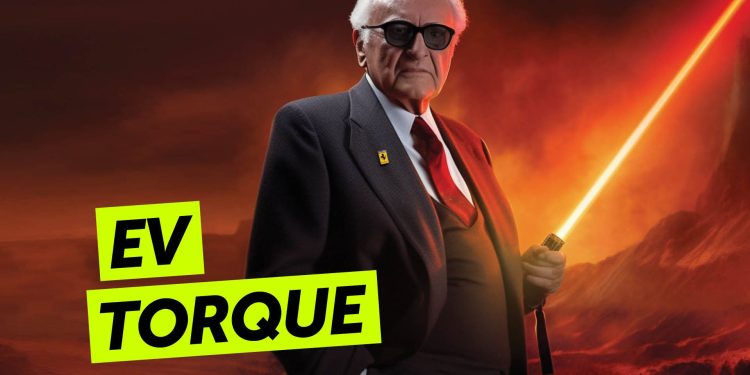EV Torque – The Empire (of combustion engines) Strikes Back
Words: Mark Gilbert
Well, within days of suggesting the ICE era was all but over in the European Union, Germany orchestrated a last-minute reprieve.
Instead of completely phasing out fossil fuel vehicles from 2035, the EU agreed to allow sales of ICE models after the 2035 deadline — provided those vehicles operate only on ‘carbon-neutral’ fuels, known as ‘e-fuels.’ In this way, the European Union says it has maintained its commitment to reduce CO2 emissions from new vehicles by 100 per cent.
Porsche and Ferrari are among the supporters of e-fuels, which they see as a way to avoid their sports vehicles being weighed down by batteries. However, many of the major car companies in Europe remain committed to electric vehicles – including the likes of Volkswagen, Volvo, and Mercedes-Benz.
Despite their support for e-fuels, Porsche is also investing heavily into EVs with the battery-powered Macan due next year. Porsches powered by electricity are expected to account for 80 per cent of the brand’s sales by 2030.
This e-fuel loophole created by Germany and supported by Italy, is of course not without controversy. E-fuels, like e-kerosene, e-methane, or e-methanol, are made by synthesising captured CO2 emissions and hydrogen produced using renewable electricity. E-fuels can be used in today’s ICE vehicles and transported via existing fossil fuel logistics networks.
These fuels release CO2 into the atmosphere when used in an ICE engine, just as they do with conventional petrol. But the idea is that those emissions are equal to the amount removed from the atmosphere to produce the fuel, therefore making it CO2-neutral. The electricity used to create e-fuels must be 100 per cent renewable for the carbon neutrality to hold.
Supporters of e-fuels say they provide a pathway to reduce CO2 emissions from the existing passenger car fleet, without replacing every vehicle with an electric one. They can also be distributed through existing infrastructure. This may provide opportunities for decarbonisation in developing economies.
Critics highlight that manufacturing e-fuels is very expensive and energy intensive and production is yet to reach what would be deemed a viable scale. Producing e-fuels for use in an internal combustion engine car would require about five times more renewable electricity than running an equivalent fully electric vehicle, according to a 2021 paper in the Nature Climate Change Journal.
Other research suggests e-fuels used for road transport are highly inefficient compared with direct electrification of vehicles: “swapping just 10 per cent of cars to e-fuels and another 10 per cent to hydrogen would push up electricity demand by 36 per cent”, according to Transport & Environment, Europe’s leading clean transport campaign group.
Burning e-fuels in cars does nothing for local air quality. Last year, lab tests done by the same European think tank showed that a car burning synthetic fuel pumped out as many toxic NOx emissions as it did when burning fossil fuels.
These harmful emissions are often overlooked; according to the Health and Air Pollution in New Zealand study, more than 3300 of us die every year from causes relating to air pollution, the majority of which is caused by burning fossil fuels.
At the moment, the expense of e-fuels would also prevent widespread use. For example – in 2030 an average driver in the EU could pay €782 a year more for e-petrol than for conventional fuel.
Despite some of these challenges – the technology is in its infancy – this legislated window in Europe provides proponents an opportunity to demonstrate its viability, carbon neutrality, and a pathway to widespread adoption.
Meanwhile, in New Zealand, our uptake of EVs rolls on. With 70,000 EVs on NZ roads, it’s encouraging to see the relatively fast pivot that NZ car importers have performed to achieve this. Well done to all involved.





